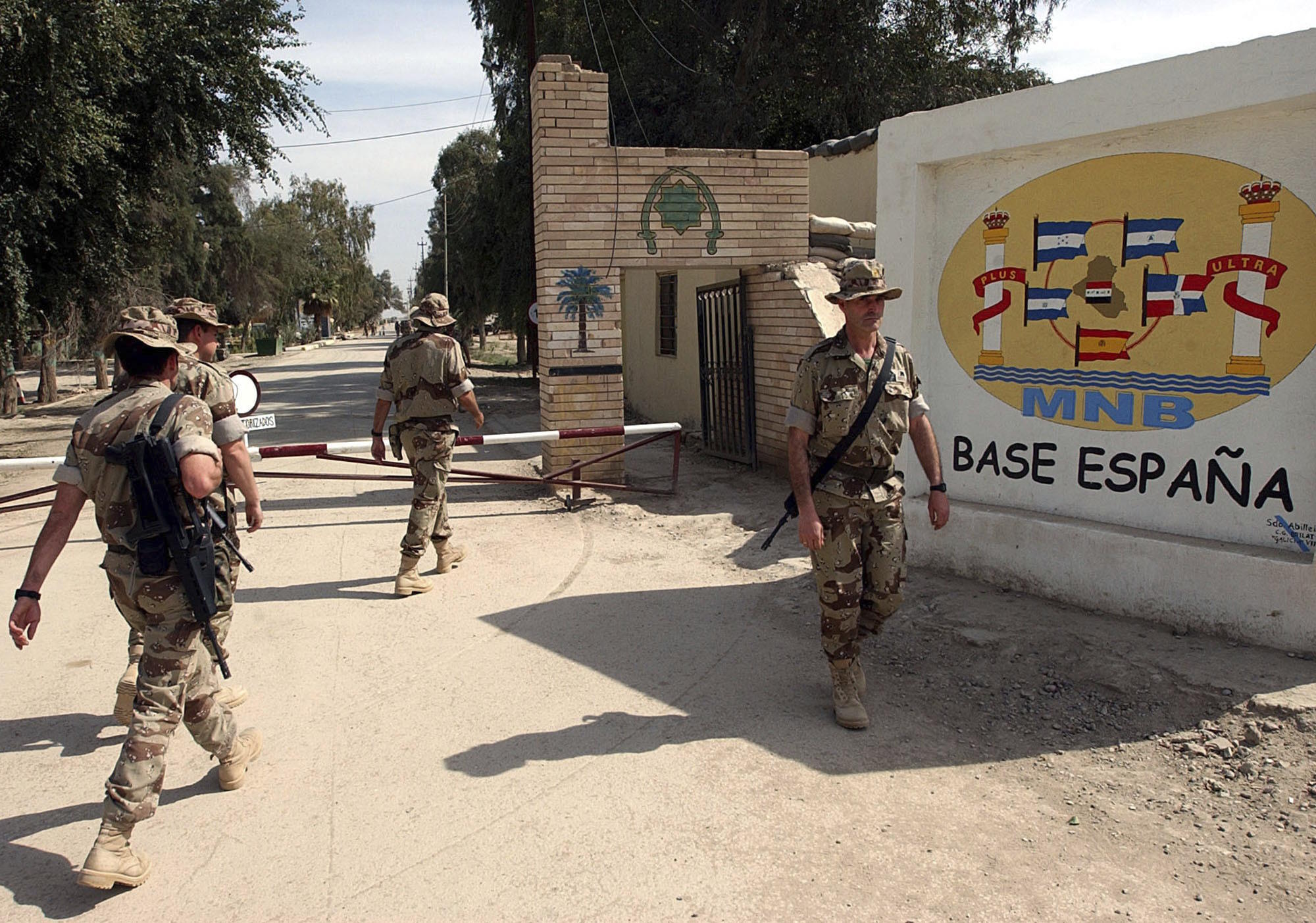The 650 Spanish soldiers deployed on the border between Lebanon and Israel have endured one of the toughest nights of the past year. As confirmed by Defense sources to EL MUNDO, the soldiers, all from the Army and belonging to the Aragón I Brigade, "spent the night in bunkers, but everyone is fine".
Spain leads this United Nations peacekeeping mission. The highest-ranking officer is General Aroldo Lázaro, who has been in charge of the 10,500 troops forming part of the mission since February 2022. Their objective is to ensure peace along the blue line, the border established by the UN between both countries in 2000. The soldiers patrol to guarantee security, while the commanders work towards de-escalating tensions and hostilities. Leading the Spanish troops is General García del Barrio, who maintains almost daily telephone contact with the Minister of Defense, Margarita Robles.
For several days, the deployed Spaniards were carrying out "essential movements", as stated by the minister, to fulfill their duties. Even then, they spent a lot of time in bunkers. However, when Israeli authorities reported the ground incursion, the order was given not to leave the bunkers, where they spent the night equipped with their protective gear.
This newspaper inquired about the possibility of a withdrawal of Spanish troops, a scenario currently ruled out. It would be up to the United Nations to issue such an order, as EL MUNDO recalled: "In 2006, we did not leave, and for now, it is ruled out".
The mission's X account confirms what EL MUNDO reported, stating that they will remain in their positions. "We have contingency plans ready to be activated if absolutely necessary," reads the message on social media. It also ensures that "any crossing into Lebanon constitutes a violation of Lebanese sovereignty and territorial integrity, and a violation of resolution 1701."
What seems increasingly likely is the evacuation of civilians. Around 960 Spaniards live in Lebanon, although there is no specific number of how many would want to leave the country. Until last night, consular services were advising citizens to use commercial flights. However, the only airline operating at Beirut airport is Middle East, and tickets are sold out. This newspaper has been in contact with the Spanish couple who shared their situation last week. Despite frequent contact from the Embassy, they still have not been provided with solutions.
The Operations Command has all the necessary resources ready for when an evacuation is authorized. There have been military personnel on the ground and also from Madrid. They are only awaiting the government's order to proceed.
